1. Overview
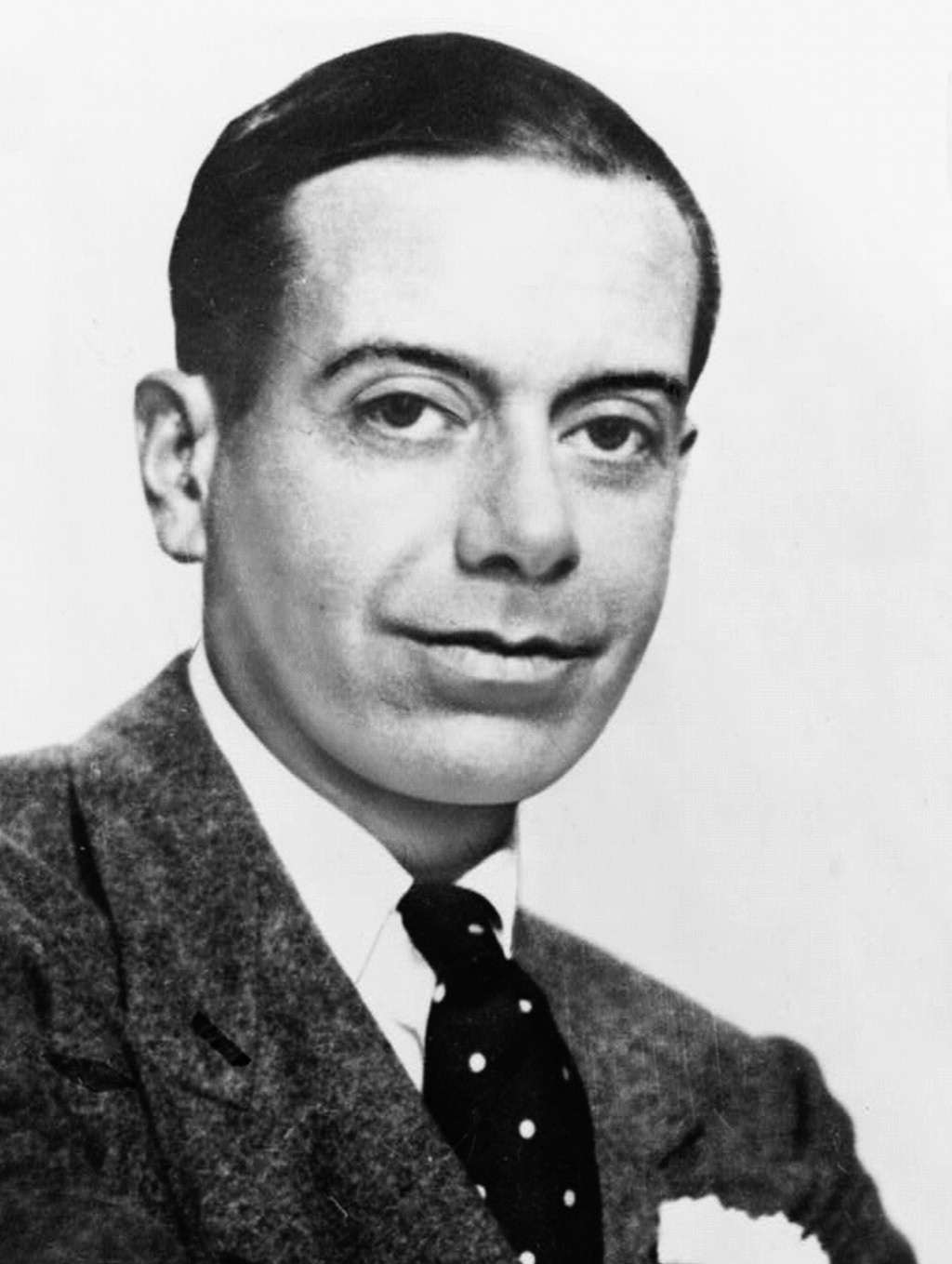
Cole Albert Porter (June 9, 1891 - October 15, 1964) was a prominent American composer and lyricist, celebrated for his distinctive witty and urbane style. Many of his compositions became enduring standards in the Great American Songbook, and his scores achieved significant success on Broadway and in Hollywood films. Porter was unique among many successful Broadway composers for writing both the music and lyrics for his songs. Despite suffering a severe horseback riding accident in 1937 that left him with lifelong pain and disability, he continued his prolific songwriting career, making a triumphant comeback in 1948 with his most successful musical, Kiss Me, Kate. His notable works include musicals like Anything Goes and Fifty Million Frenchmen, and hit songs such as "Night and Day", "Begin the Beguine", and "You're the Top".
2. Life
2.1. Early Life and Education
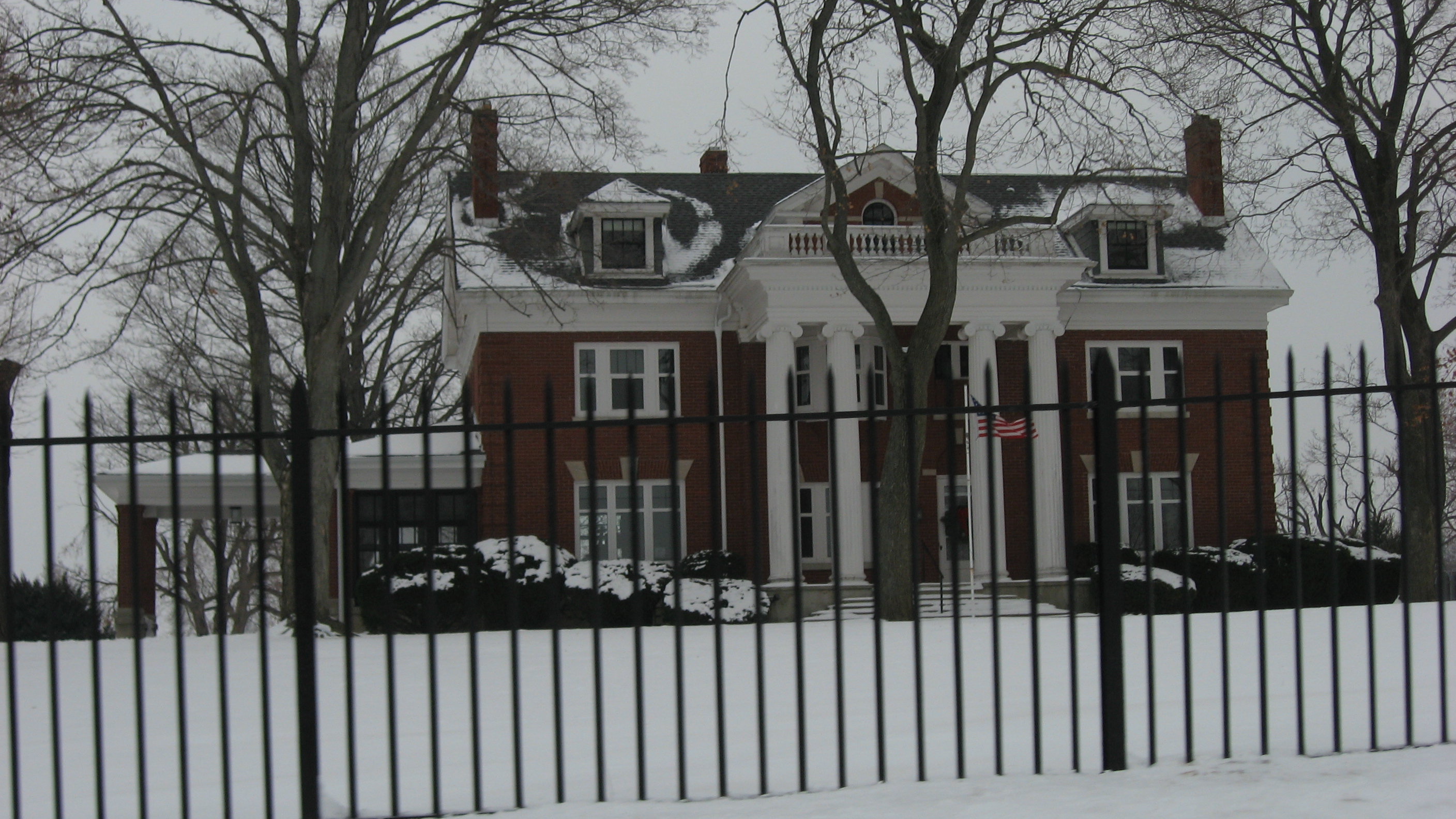
Cole Porter was born in Peru, Indiana, on June 9, 1891, the only surviving child of a wealthy family. His parents, Samuel Fenwick Porter, a pharmacist who owned three drugstores in Peru, and Kate, had two children who died in infancy before Cole's birth. Kate was the indulged daughter of James Omar "J. O." Cole, a coal and timber speculator considered "the richest man in Indiana," who largely dominated the family. J. O. Cole, whose great-grandfather had settled in Peru in 1834, made his fortune in California during the Gold Rush of 1849 before investing in Indiana farmland and West Virginia timber, coal, and oil. He built a house for Cole's parents on his Peru-area property, known as Westleigh Farms.
Porter's strong-willed mother doted on him and initiated his musical training at an early age. He began learning the violin at six, the piano at eight, and composed his first operetta with his mother's assistance at the age of ten. To make him appear more precocious, his mother falsified his birth year, changing it from 1891 to 1893. His father, a shy and unassertive man, played a lesser role in his upbringing, though his amateur poetry may have influenced Cole's gifts for rhyme and meter. Despite his father's talents as a singer and pianist, their relationship was not close.
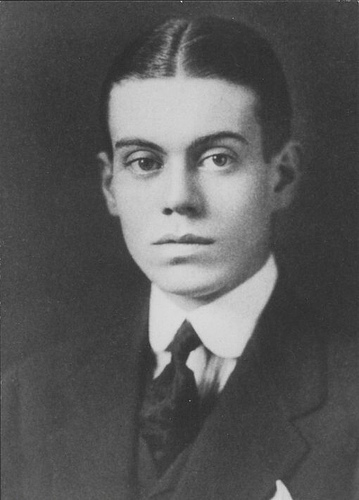
J. O. Cole intended for his grandson to become a lawyer and sent him to Worcester Academy in Massachusetts in 1905. Porter brought an upright piano to school, finding that his musical talent and ability to entertain helped him make friends easily. He excelled academically, becoming class valedictorian, and was rewarded by his grandfather with a tour of France, Switzerland, and Germany. In 1909, Porter entered Yale College, majoring in English, minoring in music, and also studying French. He was a member of the Scroll and Key secret society and the Delta Kappa Epsilon fraternity, and contributed to the campus humor magazine The Yale Record. He was an early member of the Whiffenpoofs a cappella singing group and participated in several other music clubs, eventually being elected president and principal soloist of the Yale Glee Club in his senior year.
While at Yale, Porter composed 300 songs, including the enduring football fight songs "Bulldog" and "Bingo Eli Yale" (also known as "Bingo, That's The Lingo!"), which are still performed at Yale. He frequently traveled to New York City for its vibrant nightlife, enjoying dinner, theater, and nights out with classmates before returning to New Haven, Connecticut, in the early mornings. He also wrote musical comedy scores for his fraternity and the Yale Dramatic Association, as well as for Harvard, including Cora (1911), And the Villain Still Pursued Her (1912), The Pot of Gold (1912), The Kaleidoscope (1913), and Paranoia (1914). These early works helped prepare him for a career as a Broadway and Hollywood composer and lyricist. After graduating from Yale, Porter enrolled in Harvard Law School in 1913, where he roomed with future Secretary of State Dean Acheson. However, he soon realized he was not destined for a legal career. At the suggestion of the law school dean, he transferred to Harvard's music department, studying harmony and counterpoint with Pietro Yon. His mother supported this decision, but it was kept secret from J. O. Cole.
In 1915, Porter's first song on Broadway, "Esmeralda", appeared in the revue Hands Up. This quick success was immediately followed by a setback: his first full Broadway production, See America First (1916), a "patriotic comic opera" inspired by Gilbert and Sullivan with a book by T. Lawrason Riggs, closed after only two weeks. Porter remained in New York City for another year before moving overseas during World War I.
2.2. World War I, Paris, and Marriage
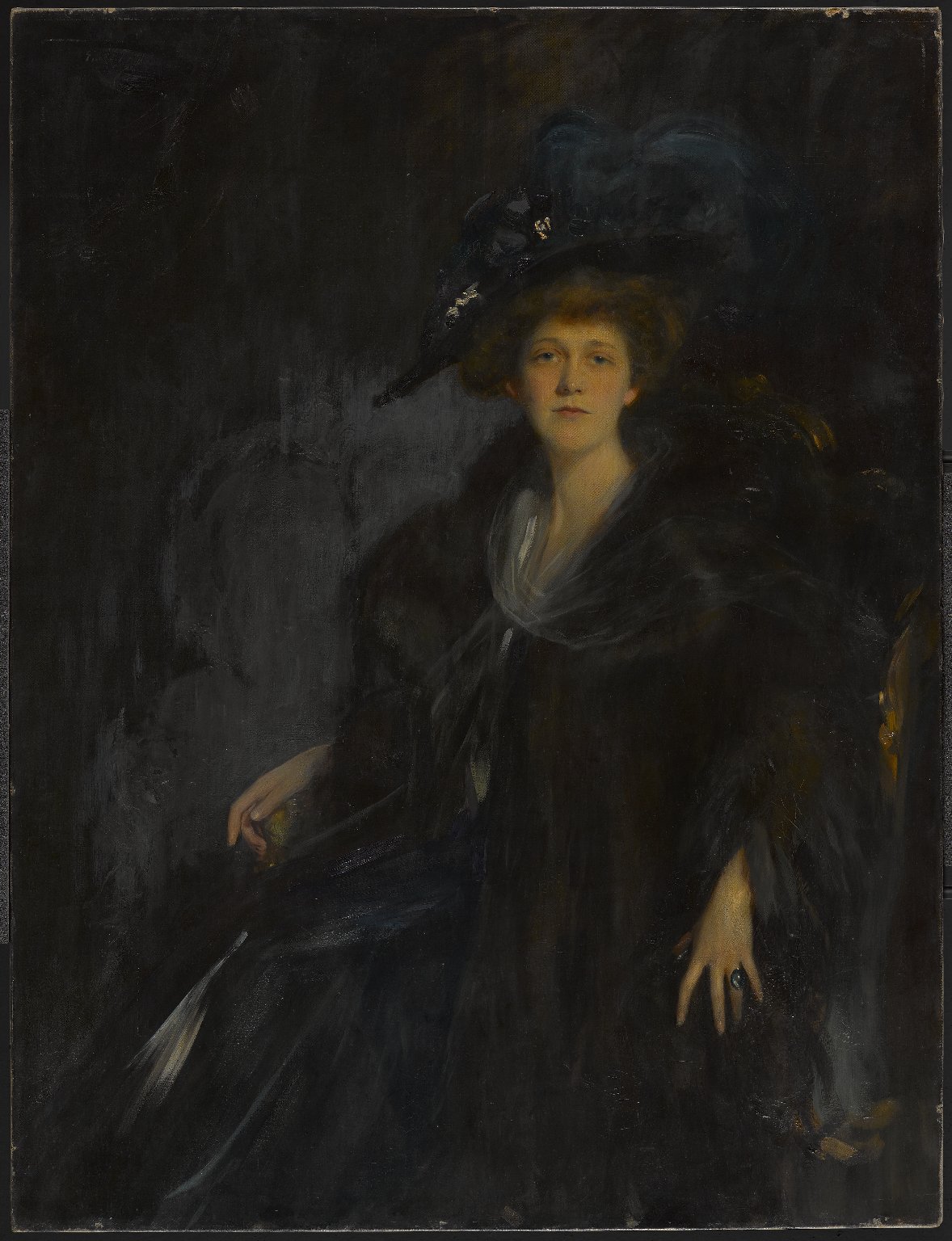
In 1917, following the United States' entry into World War I, Porter relocated to Paris to work with the Duryea Relief organization. While some writers have expressed skepticism regarding Porter's claim of service in the French Foreign Legion, the Legion officially lists him as one of its soldiers and displays his portrait at its museum in Aubagne. According to some accounts, he served in North Africa and was later transferred to the French Officers School at Fontainebleau, where he taught gunnery to American soldiers. An obituary in The New York Times stated that he had a specially constructed portable piano made to carry on his back and entertain troops in their bivouacs. Another account by his biographer Stephen Citron suggests there is no record of his enlistment in this or any other branch of the forces, stating Porter claimed to have joined the recruiting department of the American Aviation Headquarters.
Porter maintained a luxurious apartment in Paris, where he hosted extravagant and often scandalous parties, characterized by "much gay and bisexual activity, Italian nobility, cross-dressing, international musicians and a large surplus of recreational drugs". In 1918, he met Linda Lee Thomas, a wealthy divorcée from Louisville, Kentucky, who was eight years his senior. Linda had divorced newspaper mogul Edward R. Thomas in 1912, receiving over 1.00 M USD in the settlement. She was beautiful and socially well-connected, and the couple shared mutual interests, including a love of travel. Linda became Porter's confidante and companion.

They married on December 19, 1919. Linda was aware of Porter's homosexuality, noting his "frequent homosexual encounters," but the marriage was mutually advantageous. For Linda, it offered continued social status and a partner who was the antithesis of her abusive first husband. For Porter, it provided a respectable heterosexual front in an era when homosexuality was not publicly acknowledged. Despite this, they were genuinely devoted to each other and remained married until her death in 1954. Linda was protective of her social standing and, believing classical music might be a more prestigious outlet for her husband's talents than Broadway, attempted to use her connections to find him suitable teachers, including Igor Stravinsky, though unsuccessfully. Porter ultimately enrolled at the Schola Cantorum in Paris, where he studied orchestration and counterpoint with Vincent d'Indy. Meanwhile, Porter's first significant hit was the song "Old-Fashioned Garden" from the 1919 revue Hitchy-Koo of 1919. In 1920, he contributed several songs to the musical A Night Out.
Marriage did not curb Porter's taste for extravagant luxury. The Porters' home on the rue Monsieur near Les Invalides was a palatial residence adorned with platinum wallpaper and chairs upholstered in zebra skin. In 1923, Porter inherited a substantial sum from his grandfather, enabling the couple to live in rented palaces in Venice. He once hired the entire Ballets Russes to entertain his guests, and for a party at Ca' Rezzonico, which he rented for 4.00 K USD a month, he employed 50 gondoliers as footmen and arranged for a troupe of tightrope walkers to perform under a blaze of lights. Amidst this opulent lifestyle, Porter continued to write songs with his wife's encouragement.
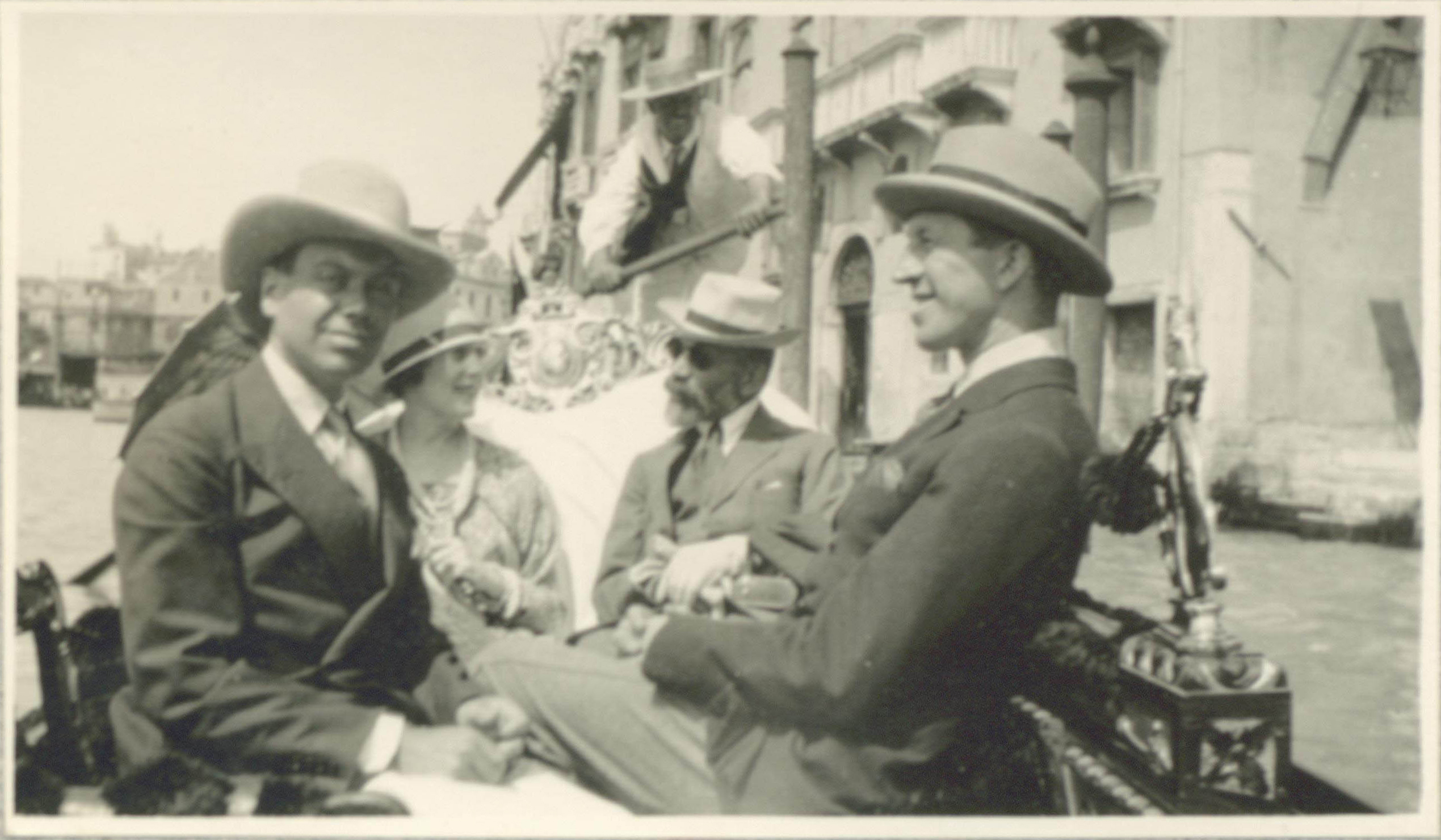
In the years immediately following his marriage, Porter received few commissions for songs, occasionally having numbers interpolated into other writers' revues in Britain and the U.S. For a C. B. Cochran show in 1921, he achieved success with the comedy numbers "The Blue Boy Blues" and "Olga, Come Back to the Volga". In 1923, in collaboration with Gerald Murphy, he composed a short ballet, initially titled Landed and later Within the Quota. This work satirically depicted the adventures of an immigrant to America who becomes a film star. Written for the Ballets suédois, the piece lasts approximately 16 minutes and was orchestrated by Charles Koechlin. It premiered on the same night as Darius Milhaud's La création du monde at the Théâtre des Champs-Élysées in October 1923. Porter's work was one of the earliest symphonic jazz-based compositions, predating George Gershwin's Rhapsody in Blue by four months, and was well received by both French and American reviewers. The Musical Times, a British classical music journal, commented that "There was plenty of excitement of a certain kind - at least for the more excitable spectators."
Following a successful New York performance the next month, the Ballets suédois toured the work in the U.S., performing it 69 times. A year later, the company disbanded, and the score was lost until it was reconstructed from Porter's and Koechlin's manuscripts between 1966 and 1990, with assistance from Milhaud and others. Porter had less success with his contributions to The Greenwich Village Follies (1924). He wrote most of the original score, but his songs were gradually removed during the Broadway run, and by the time of the post-Broadway tour in 1925, all his numbers had been deleted. Frustrated by the public's response to much of his work, Porter almost abandoned songwriting as a career, though he continued to compose for friends and perform at private parties.
2.3. The Horseback Riding Accident
On October 24, 1937, while riding with Countess Edith di Zoppola and Duke Fulco di Verdura at the Piping Rock Club in Locust Valley, New York, Porter's horse rolled on him, crushing his legs. This accident left him substantially crippled and in constant pain for the remainder of his life. Despite doctors informing Porter's wife and mother that his right leg, and possibly his left, would require amputation, he steadfastly refused the procedure. Linda, who rushed from Paris to be with him, supported his decision against amputation. He remained hospitalized for seven months before being allowed to return to his apartment at the Waldorf Towers. Linda, observing the deteriorating political situation in Europe, closed their Paris house in April 1939. Porter resumed work as soon as he was able, finding that it helped distract him from his perpetual pain.
3. Personal Life
Cole Porter's personal life was marked by the complexities of his marriage to Linda Lee Thomas and his homosexuality, set against the social context of an era when same-sex relationships were not publicly acknowledged. Despite being gay and having "frequent homosexual encounters," Porter entered into a marriage with Linda that was mutually advantageous. For Linda, it offered continued social status and a partner who was a stark contrast to her abusive first husband. For Porter, it provided a respectable heterosexual facade in a society that did not openly accept homosexuality. Their union, which lasted from December 19, 1919, until Linda's death in 1954, was characterized by genuine devotion. Linda was aware of his sexual orientation, and their relationship was built on companionship and mutual support rather than conventional romance.
When the Porters moved to Hollywood in December 1935, Linda disliked the film environment, and Porter's previously discreet homosexual acts became less so, leading her to retreat to their Paris home. After his film assignment on Rosalie concluded in 1937, Porter returned to Paris to reconcile with Linda, but she remained distant. Following a walking tour of Europe with friends, Porter returned to New York in October 1937 without her, only to be reunited by the severe horseback riding accident he suffered shortly thereafter. The 2004 biographical film De-Lovely notably depicted Porter's confession of his homosexuality to Linda and her acceptance of it, illustrating the unique nature of their bond.
4. Career and Achievements
4.1. Broadway Musicals
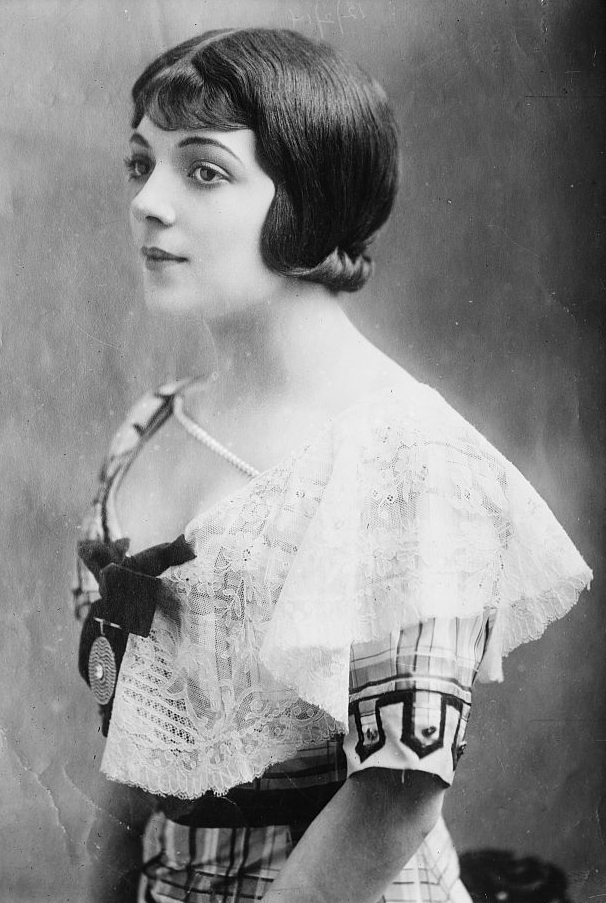
At the age of 36, Porter made a significant return to Broadway in 1928 with Paris, which became his first major hit. The musical was commissioned by E. Ray Goetz at the urging of Goetz's wife and the show's star, Irène Bordoni. Bordoni had initially sought Rodgers and Hart to write the songs, but their unavailability led Porter's agent to secure him the commission. In August 1928, Porter's work on the show was interrupted by the death of his father, prompting him to return to Indiana to comfort his mother before resuming work. The score for Paris included "Let's Misbehave" and one of his most famous list songs, "Let's Do It, Let's Fall in Love", introduced by Bordoni and Arthur Margetson. The show premiered on Broadway on October 8, 1928. The Porters did not attend the opening night as Cole was in Paris overseeing another commissioned show, La Revue des Ambassadeurs at the Les Ambassadeurs music hall, which was also a success. This period marked Porter's acceptance into the upper echelon of Broadway songwriters.
Producer C. B. Cochran, now seeking more than just isolated songs from Porter, planned a West End extravaganza similar to Ziegfeld's productions, featuring a Porter score and a large international cast including Jessie Matthews, Sonnie Hale, and Tilly Losch. The revue, Wake Up and Dream, enjoyed a run of 263 performances in London before Cochran transferred it to New York in 1929. On Broadway, the production's business was severely impacted by the Wall Street crash of 1929, resulting in a shorter run of only 136 performances. However, the Porters were not significantly affected by the crash, as their assets were held in safe investments across several foreign banks. From Porter's perspective, the show was nonetheless a success, as his song "What Is This Thing Called Love?" gained immense popularity. Porter's newfound fame led to offers from Hollywood, but his score for Paramount's The Battle of Paris was deemed undistinguished, and its star, Gertrude Lawrence, was miscast, leading to the film's failure. Some critics believed Porter was not fully invested in cinema and "noticeably wrote down for the movies."
Continuing with a Gallic theme, Porter's final Broadway show of the 1920s was Fifty Million Frenchmen (1929), for which he composed 28 numbers, including "You Do Something to Me", "You've Got That Thing", and "The Tale of the Oyster". The show received mixed reviews, with one critic praising the lyrics as enough to "drive anyone but P. G. Wodehouse into retirement," while others found the songs merely "pleasant" and lacking an "outstanding hit song." As it was a lavish and expensive production, anything less than full houses would result in closure. After only three weeks, the producers announced its impending closure. However, Irving Berlin, an admirer and champion of Porter, took out a paid press advertisement hailing the show as "The best musical comedy I've heard in years. ... One of the best collections of song numbers I have ever listened to." This intervention saved the show, allowing it to run for 254 performances, considered a successful run for the era.
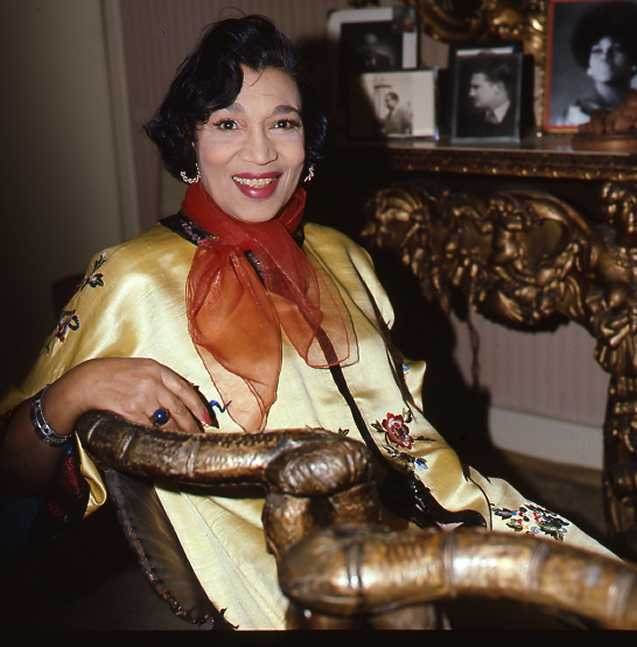
Ray Goetz, the producer of Paris and Fifty Million Frenchmen, whose successes had kept him solvent during the post-crash slump on Broadway, invited Porter to write a musical about New York, another city he knew and loved. Goetz brought together the team Porter had last worked with: Herbert Fields for the book and Porter's old friend Monty Woolley to direct. The New Yorkers (1930) gained instant notoriety for featuring "Love for Sale", a song about a streetwalker. Initially performed by Kathryn Crawford in a street setting, critical disapproval led Goetz to reassign the number to Elisabeth Welch in a nightclub scene. The lyrics were considered too explicit for radio at the time, though it was recorded and aired as an instrumental and quickly became a standard. Porter often cited it as his favorite of his songs. The New Yorkers also included the hit "I Happen to Like New York".
Next came Fred Astaire's final stage show, Gay Divorce (1932), which featured "Night and Day", a song that became Porter's most famous. Less than two months after the show's opening, "Night and Day" was featured on two best-selling recordings and topped sheet music sales, eventually becoming a top money-earner for Warner Brothers and an all-time ASCAP top earner. Despite mixed press, as some critics were reluctant to accept Astaire without his previous partner, his sister Adele, the show ran for a profitable 248 performances. The film rights, retitled The Gay Divorcee, were sold to RKO Pictures, though the film version, starring Astaire and Ginger Rogers, retained only "Night and Day" from Porter's score. Porter followed this with a West End show for Gertrude Lawrence, Nymph Errant (1933), presented by Cochran at the Adelphi Theatre, where it ran for 154 performances. Hit songs composed for the show included "Experiment" and "The Physician" for Lawrence, and "Solomon" for Elisabeth Welch.
In 1934, producer Vinton Freedley pioneered a new approach to musicals, aiming to create an ideal production by engaging stars and writers from the outset. He sought Ethel Merman, William Gaxton, and comedian Victor Moore as stars, planning a story about a shipwreck and a desert island. For the book, he turned to P. G. Wodehouse and Guy Bolton, and for the songs, he chose Porter. Freedley assembled his ideal team by telling each party that the others had already signed on. A drastic last-minute rewrite of the book was necessitated by a major shipping accident, the fire on the S.S. Morro Castle, which dominated the news and made Bolton and Wodehouse's original plot seem tasteless. Howard Lindsay and Russel Crouse almost completely rewrote the book.
Nevertheless, the show, Anything Goes, was an immediate hit, with Porter composing what many consider his greatest score of this period. The New Yorker magazine's review declared, "Mr. Porter is in a class by himself." Porter himself later called it one of his two perfect shows, alongside Kiss Me, Kate. Its songs include "I Get a Kick Out of You", "All Through the Night", "You're the Top" (another of his best-known list songs), and "Blow, Gabriel, Blow", as well as the title number. The show ran for 420 performances in New York, a particularly long run in the 1930s, and 261 in London. Although Porter checked and amended orchestral parts as needed, he did not orchestrate his musicals; Anything Goes was orchestrated by Robert Russell Bennett and Hans Spialek. Other Porter shows were orchestrated by Maurice B. DePackh, Walter Paul, Don Walker, and Philip J. Lang. At the height of his success, Porter visibly enjoyed the opening nights of his musicals, making grand entrances and appearing to relish the show as much as any audience member, prompting Russel Crouse to comment, "Cole's opening-night behaviour is as indecent as that of a bridegroom who has a good time at his own wedding."
Anything Goes was the first of five Porter shows to feature Ethel Merman. Porter admired her loud, brassy voice and tailored many numbers to showcase her strengths. Jubilee (1935), co-written with Moss Hart during a world cruise, was not a major hit, running for only 169 performances, but it introduced two songs that later became standards: "Begin the Beguine" and "Just One of Those Things". Red, Hot and Blue (1936), starring Merman, Jimmy Durante, and Bob Hope, ran for 183 performances and featured "It's De-Lovely", "Down in the Depths (on the Ninetieth Floor)", and "Ridin' High". The relatively modest success of these shows led Porter to believe his songs might not appeal to a broad enough audience. He stated in an interview that "Sophisticated allusions are good for about six weeks ... more fun, but only for myself and about eighteen other people, all of whom are first-nighters anyway. Polished, urbane and adult playwriting in the musical field is strictly a creative luxury."
4.2. Film Scores
Porter also contributed to Hollywood film scores in the mid-1930s. His notable scores include those for the Metro-Goldwyn-Mayer films Born to Dance (1936), starring James Stewart, which featured "You'd Be So Easy to Love" and "I've Got You Under My Skin". He also composed for Rosalie (1937), featuring "In the Still of the Night". In 1935, he wrote the score for the short film Paree, Paree, incorporating some songs from Fifty Million Frenchmen.
Additionally, Porter composed the cowboy song "Don't Fence Me In" in 1934 for Adios, Argentina, a film that was ultimately unproduced. However, the song gained widespread popularity when Roy Rogers sang it in the 1944 film Hollywood Canteen, and it was further popularized by artists like Bing Crosby and The Andrews Sisters in the 1940s. The Porters moved to Hollywood in December 1935, but Linda disliked the movie environment, and Cole's previously discreet homosexual acts became less so, leading her to return to their Paris home. After completing his film assignment on Rosalie in 1937, Porter hastened to Paris to reconcile with Linda, but she remained distant. Following a walking tour of Europe with friends, Porter returned to New York in October 1937 without her, though they were soon reunited by the accident he suffered.
4.3. Notable Songs
Cole Porter's extensive catalog includes numerous songs that have become enduring classics, many of which were introduced in his stage musicals and film scores. Some of his most celebrated compositions include:
- "Night and Day" (1932), from Gay Divorce, became one of his signature songs.
- "Love for Sale" (1930), from The New Yorkers, was initially controversial and banned from radio but later became a jazz standard.
- "You're the Top" (1934), a witty list song from Anything Goes.
- "I Get a Kick Out of You" (1934), also from Anything Goes.
- "Begin the Beguine" (1935), from Jubilee, a complex and popular song.
- "Just One of Those Things" (1935), also from Jubilee.
- "It's De-Lovely" (1936), from Red, Hot and Blue.
- "I've Got You Under My Skin" (1936), from the film Born to Dance, famously covered by Frank Sinatra and The Four Seasons.
- "You'd Be So Easy to Love" (1936), also from Born to Dance.
- "In the Still of the Night" (1937), from the film Rosalie.
- "My Heart Belongs to Daddy" (1938), introduced by Mary Martin in Leave It to Me!.
- "Friendship" (1939), an up-tempo list song from DuBarry Was a Lady.
- "Ev'ry Time We Say Goodbye" (1944), from Seven Lively Arts.
- "True Love" (1956), from the film High Society, which became his last major hit song and was famously covered by George Harrison.
- "All of You" (1954), from Silk Stockings, a song that became a staple for jazz artists like Miles Davis, Modern Jazz Quartet, Bill Evans, and Keith Jarrett.
- "Be a Clown" (1948), from the film The Pirate.
- "You'd Be So Nice to Come Home To" (1942), from the film Something to Shout About.
- "Miss Otis Regrets" (1934), from the revue Hi Diddle Diddle.
5. Later Career and Comeback
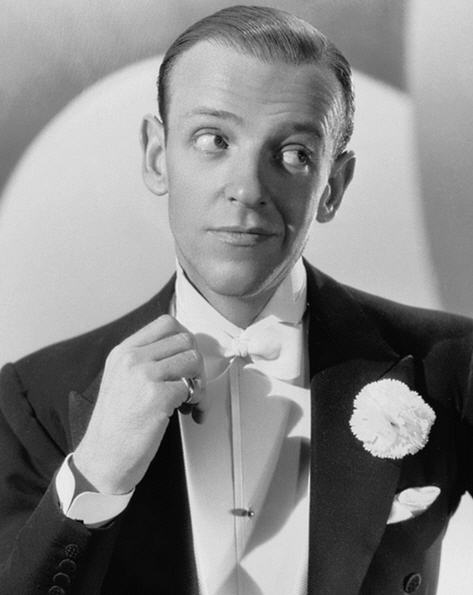
Porter's first show after his horseback riding accident, You Never Know (1938), starring Clifton Webb, Lupe Vélez, and Libby Holman, ran for only 78 performances. Its score included "From Alpha to Omega" and "At Long Last Love". He returned to success with Leave It to Me! (1938), which introduced Mary Martin singing "My Heart Belongs to Daddy", alongside other numbers like "Most Gentlemen Don't Like Love" and "From Now On". Porter's final show of the 1930s was DuBarry Was a Lady (1939), a particularly risqué production starring Merman and Bert Lahr. After a pre-Broadway tour where it encountered issues with Boston censors, it achieved 408 performances. The score included "But in the Morning, No" (which was banned from radio), "Do I Love You?", "Well, Did You Evah!", "Katie Went to Haiti", and another of Porter's up-tempo list songs, "Friendship". At the close of 1939, Porter contributed six songs to the film Broadway Melody of 1940 for Fred Astaire, George Murphy, and Eleanor Powell.
As political unrest escalated in Europe, Porter's wife closed their Paris house in 1939. The following year, she purchased a country home in the Berkshire mountains near Williamstown, Massachusetts, furnishing it with elegant pieces from their Paris residence. Porter divided his time between Hollywood, New York, and Williamstown.
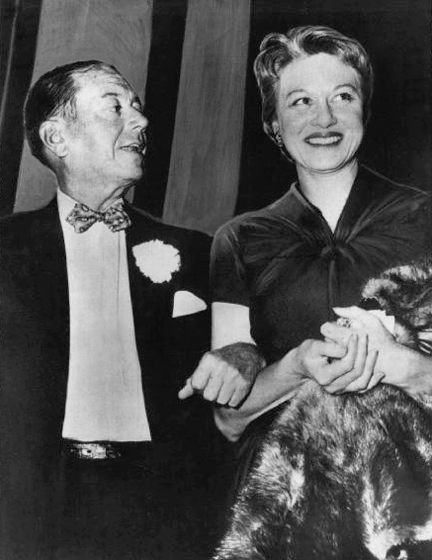
Panama Hattie (1940) became Porter's longest-running hit to date, with 501 performances in New York, despite lacking any enduring Porter songs. It starred Merman, Arthur Treacher, and Betty Hutton. Let's Face It! (1941), starring Danny Kaye, had an even longer run of 547 performances in New York. This show also failed to produce any songs that became standards, and Porter always considered it among his lesser efforts. Something for the Boys (1943), starring Merman, ran for 422 performances, and Mexican Hayride (1944), starring Bobby Clark with June Havoc, ran for 481 performances. These shows similarly lacked Porter standards. Critics were unsparing, complaining about the absence of hit tunes and the generally low quality of the scores. After two subsequent flops, Seven Lively Arts (1944), which featured the standard "Ev'ry Time We Say Goodbye", and Around the World (1946), many observers believed Porter's best period was over.
Between Broadway musicals, Porter continued to compose for Hollywood. His film scores during this period included You'll Never Get Rich (1941) with Astaire and Rita Hayworth, Something to Shout About (1943) with Don Ameche, Janet Blair, and William Gaxton, and Mississippi Belle (1943-44), which was abandoned before filming began. He also collaborated on the 1946 film Night and Day, a largely fictionalized biography of Porter, with Cary Grant implausibly cast in the lead role. Although critics scoffed, the film was a massive success, primarily due to the abundance of classic Porter songs it featured. The biopic's success sharply contrasted with the failure of Vincente Minnelli's film The Pirate (1948), starring Judy Garland and Gene Kelly, in which five new Porter songs received little attention.
From this low point, Porter staged a remarkable comeback in 1948 with Kiss Me, Kate. It became by far his most successful show, running for 1,077 performances in New York and 400 in London. The production earned the Tony Award for Best Musical (the inaugural Tony awarded in that category), and Porter received the award for best composer and lyricist. The score includes "Another Op'nin', Another Show", "Wunderbar", "So In Love", "We Open in Venice", "Tom, Dick or Harry", "I've Come to Wive It Wealthily in Padua", "Too Darn Hot", "Always True to You (in My Fashion)", and "Brush Up Your Shakespeare".
Porter began the 1950s with Out of This World (1950), which, despite featuring some good numbers, was criticized for excessive camp and vulgarity and was not a great success. His next show, Can-Can (1952), featuring "C'est Magnifique" and "It's All Right with Me", was another hit, running for 892 performances. Porter's last original Broadway production, Silk Stockings (1955), which included "All of You", was also successful, with a run of 477 performances. Porter composed two more film scores and music for a television special before concluding his Hollywood career. The film High Society (1956), starring Bing Crosby, Frank Sinatra, and Grace Kelly, featured Porter's last major hit song, "True Love". This film was later adapted into a stage musical of the same name. Porter also wrote numbers for the film Les Girls (1957), starring Gene Kelly. His final score was for the CBS television special Aladdin (1958).
6. Later Years and Death
Porter's mother died in 1952, and his wife, Linda, passed away from emphysema in 1954. By 1958, Porter's long-standing injuries led to a series of ulcers on his right leg. After 34 operations, his right leg had to be amputated and replaced with an artificial limb. His friend Noël Coward visited him in the hospital and noted in his diary, "The lines of ceaseless pain have been wiped from his face...I am convinced that his whole life will cheer up and that his work will profit accordingly." However, Porter never composed another song after the amputation and spent the remaining six years of his life in relative seclusion, seeing only intimate friends. He continued to reside in his memorabilia-filled apartment at the Waldorf Towers in New York, often visiting an estate in the Berkshires on weekends and staying in California during the summers.
Cole Porter died of kidney failure at the age of 73 on October 15, 1964, in Santa Monica, California. He is interred in Mount Hope Cemetery in his native Peru, Indiana, alongside his wife and father.
7. Legacy and Recognition
7.1. Critical Acclaim and Influence
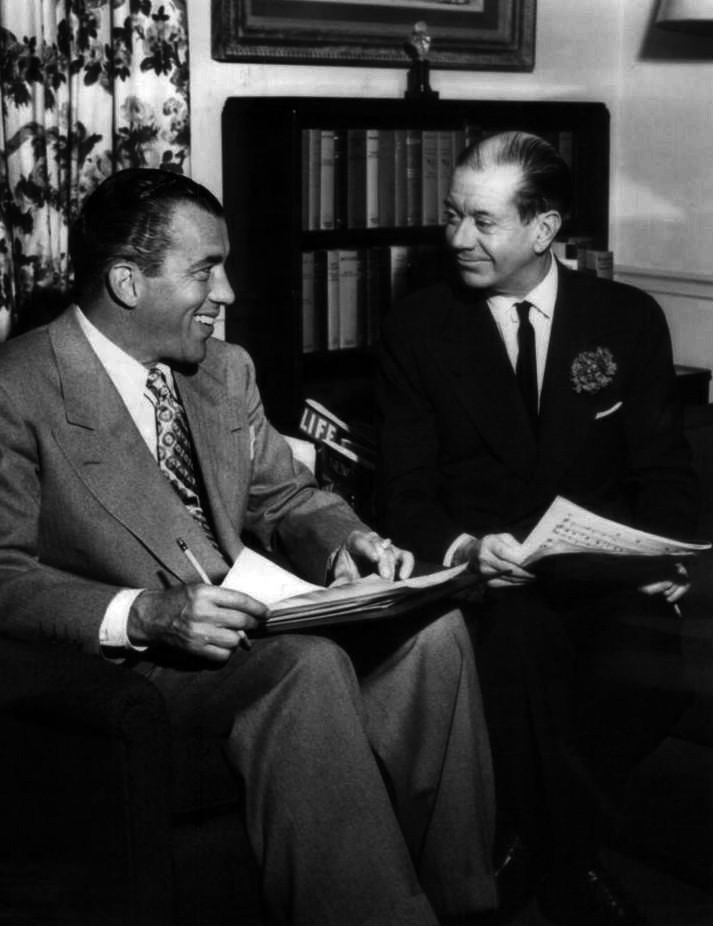
Cole Porter's work has been widely acclaimed for its musical complexity and witty, urbane lyrics, leaving a lasting influence on popular music and theatre. Many artists have recorded his songs, and dozens have released entire albums dedicated to his compositions. Notable examples include jazz singer Ella Fitzgerald's Ella Fitzgerald Sings the Cole Porter Songbook (1956) and Ella Loves Cole (1972). Other significant album collections of Porter songs include Oscar Peterson Plays the Cole Porter Songbook (1959), Anita O'Day Swings Cole Porter with Billy May (1959), All Through the Night: Julie London Sings the Choicest of Cole Porter (1965), Rosemary Clooney Sings the Music of Cole Porter (1982), and Anything Goes: Stephane Grappelli & Yo-Yo Ma Play (Mostly) Cole Porter (1989). More recently, Love for Sale (2021) by Tony Bennett and Lady Gaga paid tribute to his work. In 1990, Dionne Warwick released Dionne Sings Cole Porter, and Red Hot + Blue was released as a benefit CD for AIDS research, featuring 20 Cole Porter songs recorded by artists such as U2 and Annie Lennox.
Additional recording collections include Frank Sinatra Sings the Select Cole Porter (1996) and John Barrowman Swings Cole Porter (2004). Other singers and groups have also paid tribute to Porter; the Swedish pop music group Gyllene Tider recorded "Flickan i en Cole Porter-sång" ("That Girl from the Cole Porter Song") in 1982. He is referenced in "The Call of the Wild" by David Byrne on his 1989 album Rei Momo and mentioned in "Tonite It Shows" by Mercury Rev on their 1998 album Deserter's Songs. The soundtrack for the film adaptation of Can-Can won the 1960 Grammy Award for Best Sound Track Album.
In 1965, shortly after Porter's death, Judy Garland performed a medley of his songs at the 37th Academy Awards. The biographical stage show Cole, by Alan Strachan and Benny Green, featuring Porter hits, ran in 1974 at London's Mermaid Theatre. In 1980, Porter's music was used for the score of Happy New Year, based on the Philip Barry play Holiday. The cast of The Carol Burnett Show also paid tribute to Porter in a humorous sketch. To celebrate the one hundredth anniversary of Porter's birth in 1990, You're the Top: The Cole Porter Story, a video of archival material and interviews, and Red, Hot and Blue, a video of artists performing Porter's music, were released. In contrast to the highly embellished 1946 screen biography Night and Day (starring Cary Grant as Porter), Porter's life was chronicled more realistically in De-Lovely, a 2004 Irwin Winkler film starring Kevin Kline as Porter and Ashley Judd as Linda. The soundtrack to De-Lovely features Porter songs performed by artists such as Alanis Morissette, Sheryl Crow, Elvis Costello, Diana Krall, and Natalie Cole. Porter also appears as a character in Woody Allen's 2011 film Midnight in Paris.
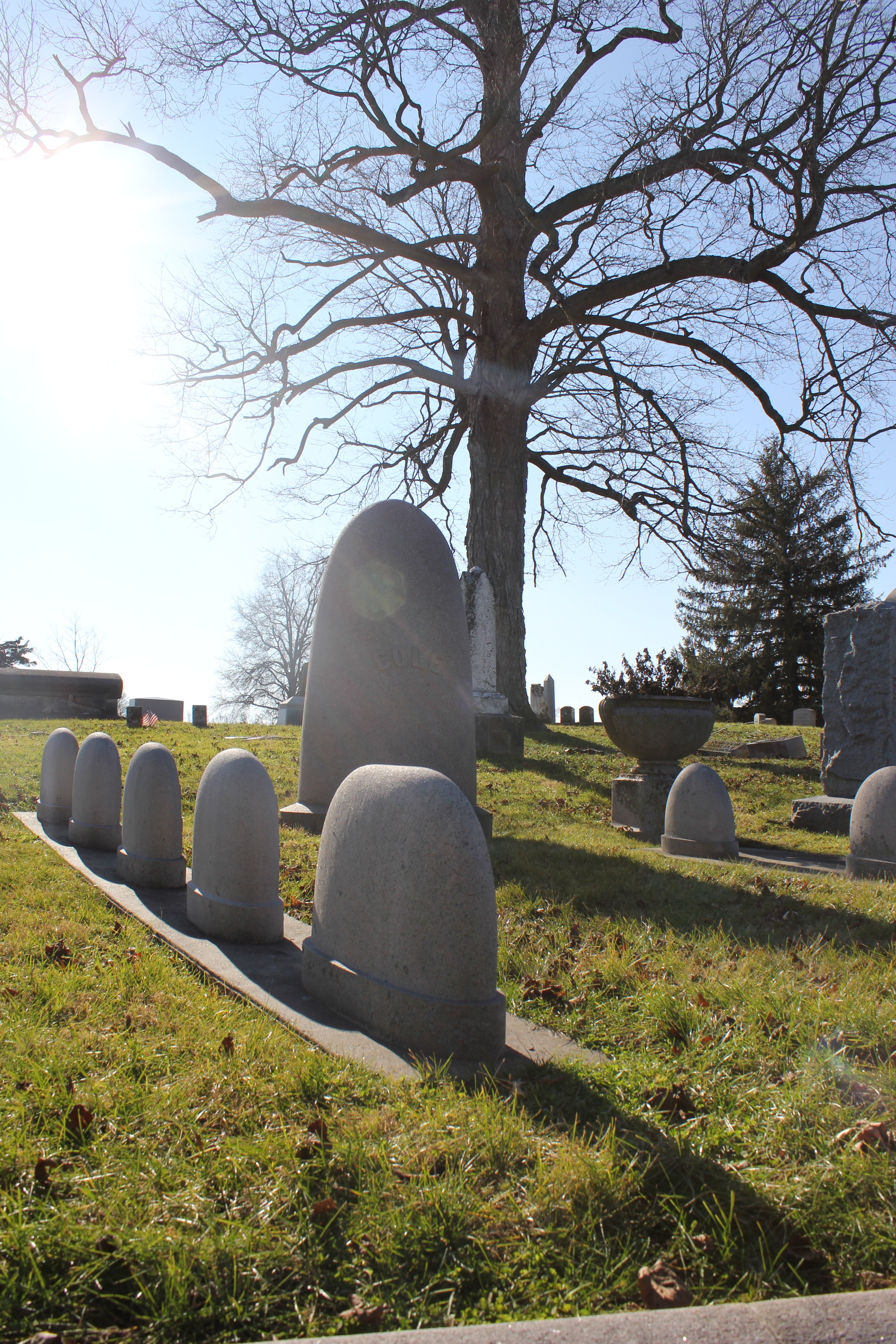
Many events commemorated the centenary of Porter's birth, including the halftime show of the 1991 Orange Bowl. Joel Grey and a large cast performed a tribute to Porter in Miami, Florida, during the 57th King Orange Jamboree parade, whose theme was "Anything Goes". The Indianapolis Symphony Orchestra performed a program of Cole Porter music at the Circle Theatre in Indianapolis, which included clips of Porter's Hollywood films. A "Gala Birthday Concert" was held at New York City's Carnegie Hall, with over 40 entertainers and friends paying tribute to Porter's long career. Additionally, the U.S. Postal Service issued a commemorative postage stamp honoring Porter's birth. The Indiana University Opera performed Porter's musical, Jubilee, in Bloomington, Indiana.
In May 2007, a star on the Hollywood Walk of Fame was dedicated to Porter. In December 2010, his portrait was added to the Hoosier Heritage Gallery in the office of the Governor of Indiana. Numerous symphony orchestras have paid tribute to Porter since his death, including the Seattle Symphony Orchestra with Marvin Hamlisch as conductor, and the Boston Pops, both in 2011. In 2012, Marvin Hamlisch, Michael Feinstein, and the Dallas Symphony Orchestra honored Porter with a concert featuring his familiar classics. The Cole Porter Festival is held annually in June in his hometown of Peru, Indiana, to promote music and art appreciation. Costumed singers in the cabaret-style Cole Porter Room at the Indiana Historical Society's Eugene and Marilyn Glick Indiana History Center in Indianapolis perform his hit songs, with the setting designed to evoke the Waldorf Astoria New York where Porter lived. Since Porter's death, his 1908 Steinway grand piano, which he used for composing since the mid-1930s, has been displayed and often played in the lobby of the Waldorf-Astoria Hotel, except for a brief period at the New York Historical Society. Porter is a member of the American Theater Hall of Fame and the Great American Songbook Hall of Fame, which recognized his "musically complex [songs] with witty, urbane lyrics." In 2014, Porter was honored with a plaque on the Legacy Walk in Chicago, which celebrates LGBT achievers.
7.2. Criticisms and Social Context
While Cole Porter's work is widely celebrated for its sophistication and wit, it also faced certain criticisms and was deeply embedded in the social and cultural context of his time. In the early 1940s, critics began to complain about a perceived lack of hit tunes and a generally lower standard in his scores, particularly for shows like Panama Hattie and Let's Face It!. Porter himself acknowledged that his "sophisticated allusions" were "good for about six weeks" and were "strictly a creative luxury," suggesting he was aware that his refined style might not always appeal to the broadest audience.
His lyrics, often daring and suggestive for their time, sometimes provoked controversy. For instance, the song "Love for Sale" from The New Yorkers (1930) was considered too explicit for radio and faced a ban, though it later became a jazz standard. This reflects the tension between Porter's urbane and often risqué lyrical content and the prevailing social norms.
Porter's personal life, particularly his homosexuality, was a significant aspect of his social context. In an era when homosexuality was not publicly acknowledged, his marriage to Linda Lee Thomas provided him with a respectable heterosexual front. While their marriage was genuinely devoted, it also served as a "mutually advantageous" arrangement for both parties. As he spent more time in Hollywood in the mid-1930s, his previously discreet homosexual acts became less so, highlighting the challenges of maintaining a private life in the public eye during a less tolerant period. The biographical film De-Lovely (2004) depicted his open confession of homosexuality to Linda, offering a more realistic portrayal of this aspect of his life than earlier fictionalized accounts. His posthumous recognition on the Legacy Walk in Chicago, which celebrates LGBT achievers, further underscores his place within this social context.
8. Works
Cole Porter's creative output spanned numerous stage musicals, film scores, and individual songs, many of which are considered classics of the American musical theater.
8.1. Stage Musicals
- (1916) See America First
- (1919) Hitchy-Koo of 1919 - "Old-Fashioned Garden"
- (1928) Paris - "Let's Do It, Let's Fall in Love", "Let's Misbehave"
- (1929) Wake Up and Dream - "What Is This Thing Called Love?"
- (1929) Fifty Million Frenchmen - "You Do Something to Me", "You've Got That Thing", "The Tale of the Oyster"
- (1930) The New Yorkers - "Love for Sale", "I Happen to Like New York", "Where Have You Been?"
- (1932) Gay Divorce - "After You, Who?", "Night and Day" (adapted as The Gay Divorcee, 1934)
- (1933) Nymph Errant - "Experiment", "The Physician", "It's Bad for Me", "Solomon"
- (1934) Anything Goes - "All Through the Night", "Anything Goes", "I Get a Kick Out of You", "You're the Top", "Blow, Gabriel, Blow"
- (1935) Jubilee - "Begin the Beguine", "Just One of Those Things"
- (1936) Red, Hot and Blue - "Down in the Depths (on the Ninetieth Floor)", "Ridin' High", "It's De-Lovely"
- (1937) You Never Know - "At Long Last Love", "From Alpha to Omega"
- (1938) Leave It to Me! - "From Now On", "Get Out of Town", "My Heart Belongs to Daddy"
- (1939) DuBarry Was a Lady - "But in the Morning No", "Do I Love You?", "Well, Did You Evah!", "Friendship", "Katie Went to Haiti"
- (1940) Panama Hattie - "I've Still Got My Health", "Let's Be Buddies", "Make It Another Old-Fashioned, Please"
- (1941) Let's Face It! - "I Hate You, Darling", "Ace in the Hole", "Everything I Love"
- (1942) Something for the Boys - "Could It Be You"
- (1943) Mexican Hayride - "I Love You"
- (1944) Seven Lively Arts - "Ev'ry Time We Say Goodbye"
- (1946) Around the World - "Look What I Found"
- (1948) Kiss Me, Kate - "Always True to You in My Fashion", "Another Op'nin', Another Show", "Brush Up Your Shakespeare", "I Hate Men", "Why Can't You Behave?", "So in Love", "Tom, Dick or Harry", "Too Darn Hot", "Wunderbar"
- (1950) Out of This World - "From This Moment On", "I Am Loved"
- (1953) Can-Can - "I Am in Love", "I Love Paris", "C'est Magnifique", "It's All Right With Me"
- (1954) Silk Stockings - "All of You", "Paris Loves Lovers"
8.2. Film Scores
- (1934) Adios Argentina (un-produced film) - "Don't Fence Me In"
- (1935) Paree, Paree (short film)
- (1936) Born to Dance - "You'd Be So Easy to Love", "I've Got You Under My Skin"
- (1937) Rosalie - "In the Still of the Night"
- (1939) Broadway Melody of 1940 - "Between You and Me", "I Concentrate on You", "I've Got My Eyes on You", "I Happen to Be in Love", "Begin the Beguine"
- (1941) You'll Never Get Rich - "Dream Dancing", "So Near and Yet So Far"
- (1942) Something to Shout About - "You'd Be So Nice to Come Home To"
- (1947) The Pirate - "Be a Clown", "Mack the Black", "You Can Do No Wrong"
- (1950) Stage Fright - "The Laziest Gal in Town"
- (1955) High Society - "Mind if I Make Love to You?", "True Love", "Who Wants to Be a Millionaire?", "You're Sensational"
- (1956) Les Girls - "Ça, C'est L'amour", "You're Just Too, Too"
8.3. Notable Songs
In addition to the songs listed under his musicals and film scores, many other individual compositions by Cole Porter have achieved lasting fame:
- "Miss Otis Regrets" (1934)
- "After You, Who?" (1932)
- "Get Out of Town" (1938)
- "I Love You" (1943)
- "From This Moment On" (1950)